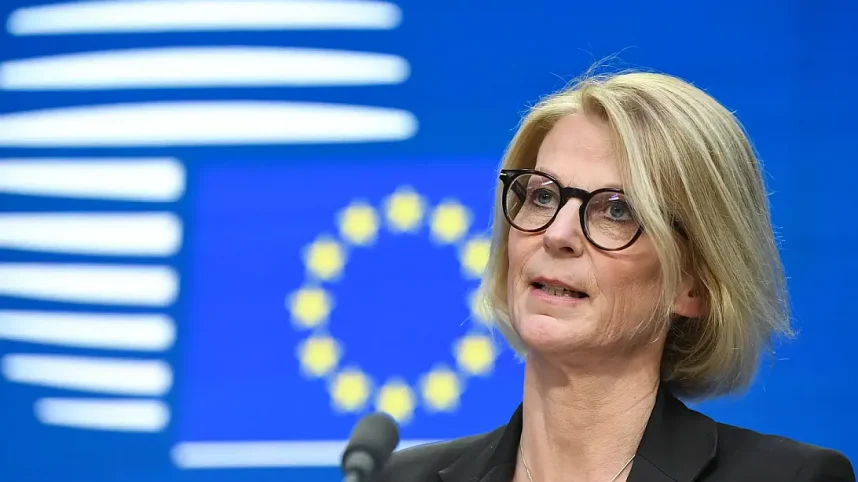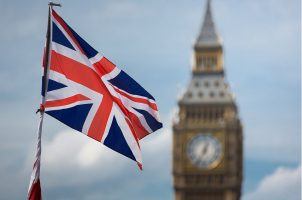Sweden Wants Online Gaming Operators To Pay More Taxes
Posted on: September 22, 2023, 07:55h.
Last updated on: September 22, 2023, 10:47h.
Sweden’s Finance Ministry has presented a new budget for the upcoming fiscal year, throwing a curve ball at the country’s online gambling operators. With no previous conversation, it included a tax rate increase that would lead to a considerable impact on revenues.

In the 413-page budget proposal, the gross gaming revenue (GGR) tax would jump from 18% to 22% and would become effective next July. Since the reregulation of Sweden’s gambling market in January 2019, the gambling tax on gross revenue hasn’t changed.
Now, according to Minister of Finance Elisabeth Svantesson, a tax of 22% is “compatible with an aim to achieve a channelization rate of at least 90%.” On an annual basis, tax revenue could increase by slightly more than SEK500 million (US$44.8 million).
Gambling to Prop Up the Economy
Svantesson and the others in the Finance Ministry justify the increase as a logical step up from when Sweden brought back licensed gambling. They believe the gambling market is more stable than it was four years ago, and channelization has increased significantly.
Therefore, in its estimation, the government doesn’t need to be as cautious in taxing the industry. Instead, it needs to introduce a tax that is “well balanced” and can improve the government’s coffers while not seriously impacting operators.
Svantesson adds in the proposal that initially, the tax rate was going to be above 20%. However, the government ultimately decided against that rate in an effort to provide a smooth transition for gaming operators.
There’s still a chance that the proposal will be rejected. The Finance Ministry will visit the Riksdag, Sweden’s government, with a formal proposal next year that reflects the recommended increase. The Riksdag could move against it.
By way of comparison, online casino operators in Germany pay a tax rate of about 19% on their GGR, although there’s a legal debate on the topic taking place now. In Italy, online casinos pay 25%.
“Bizarre” Move by the Ministry
The Swedish Online Gaming Industry Association (BOS, for its Swedish acronym) isn’t impressed with the proposal. The group, which includes Flutter, Entain, and other gaming giants, has already agreed to inject more funds into the government to help fight organized crime and prevent illegal gaming operators from reaching Swedish consumers.
BOS believes the increase may have the opposite effect of what the Finance Ministry intends, and could ultimately push some operators out of the licensed space and into the unlicensed space in order to avoid paying taxes.
This is similar to what happened in the Philippines when the government raised the taxes on the Philippine Offshore Gaming Operator Segment (POGO). The consequences of that have been devastating.
BOS Secretary General Gustaf Hoffstedt said in a statement that according to the group’s figures, channelization is 72% for online casinos and 77% for the gaming market as a whole. Raising the tax rate will have a negative impact on gaming revenue, and he finds it “bizarre” that the Finance Ministry would think otherwise.
Hoffstedt believes the Riksdag will support the proposal in its entirety, leading to “dramatic effects on channeling.” As a result, he believes the gaming industry needs to get ready for another round of reregulation.
Related News Articles
UK Facing 18% Inflation, Could Lead to Reduced Gambling Spend
Most Popular
Las Vegas Overstated F1 Race’s Vegas Impact — Report
Mega Millions Reportedly Mulling Substantial Ticket Price Increase
NoMad Hotel to Check Out of Park MGM on Las Vegas Strip
Most Commented
-
End of the Line for Las Vegas Monorail
— April 5, 2024 — 90 Comments -
Mega Millions Reportedly Mulling Substantial Ticket Price Increase
— April 16, 2024 — 8 Comments -
Long Island Casino Opponents Love New York Licensing Delays
— March 27, 2024 — 5 Comments
















No comments yet